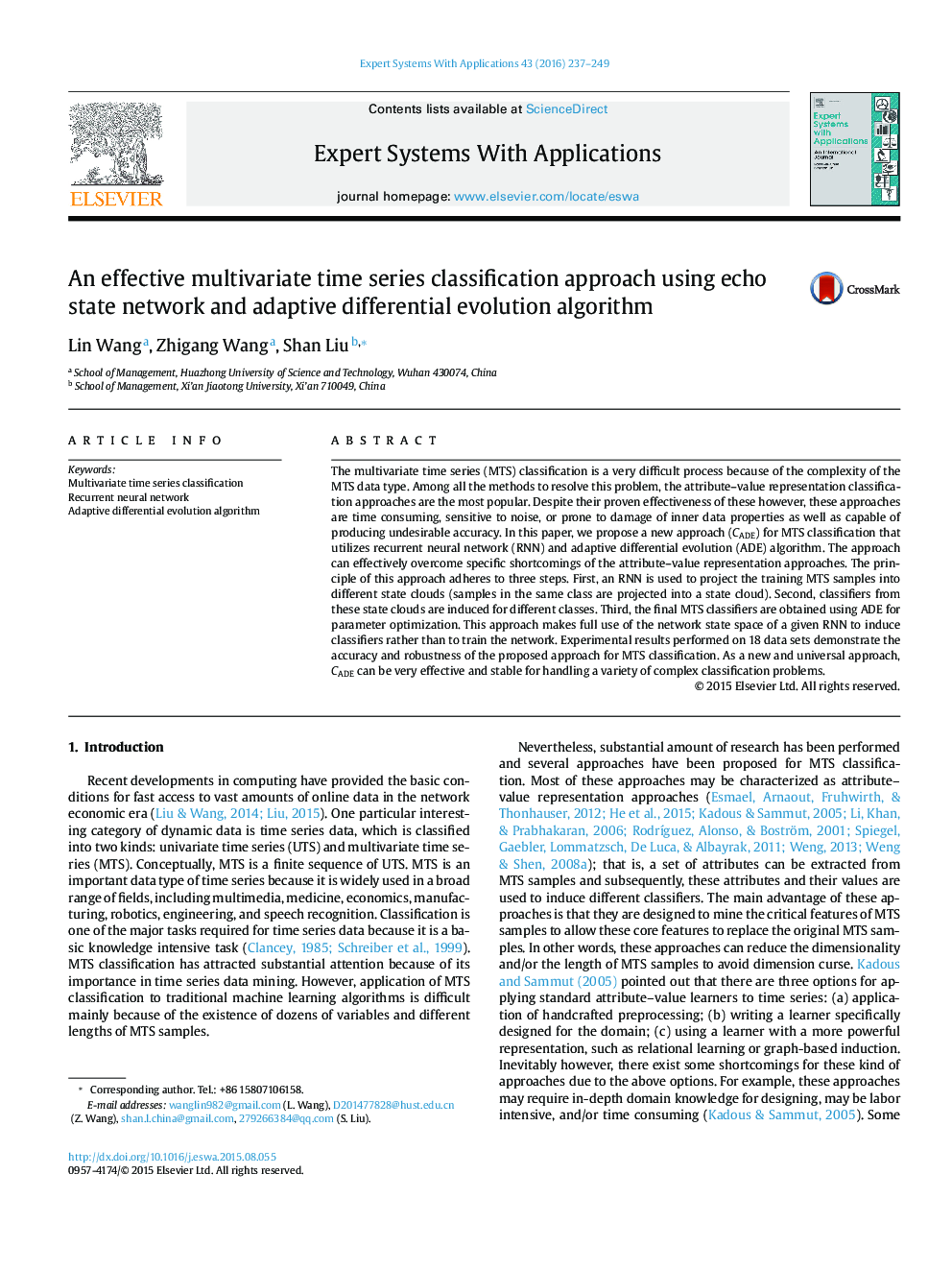| Article ID | Journal | Published Year | Pages | File Type |
|---|---|---|---|---|
| 382652 | Expert Systems with Applications | 2016 | 13 Pages |
•Propose a new multivariate time series classification approach (CADE).•Incorporate an efficient ADE for optimal decision of parameters in learning phase.•CADE outperforms other approaches in terms of accuracy for most cases.•CADE shows good robustness for all the cases.
The multivariate time series (MTS) classification is a very difficult process because of the complexity of the MTS data type. Among all the methods to resolve this problem, the attribute–value representation classification approaches are the most popular. Despite their proven effectiveness of these however, these approaches are time consuming, sensitive to noise, or prone to damage of inner data properties as well as capable of producing undesirable accuracy. In this paper, we propose a new approach (CADE) for MTS classification that utilizes recurrent neural network (RNN) and adaptive differential evolution (ADE) algorithm. The approach can effectively overcome specific shortcomings of the attribute–value representation approaches. The principle of this approach adheres to three steps. First, an RNN is used to project the training MTS samples into different state clouds (samples in the same class are projected into a state cloud). Second, classifiers from these state clouds are induced for different classes. Third, the final MTS classifiers are obtained using ADE for parameter optimization. This approach makes full use of the network state space of a given RNN to induce classifiers rather than to train the network. Experimental results performed on 18 data sets demonstrate the accuracy and robustness of the proposed approach for MTS classification. As a new and universal approach, CADE can be very effective and stable for handling a variety of complex classification problems.
